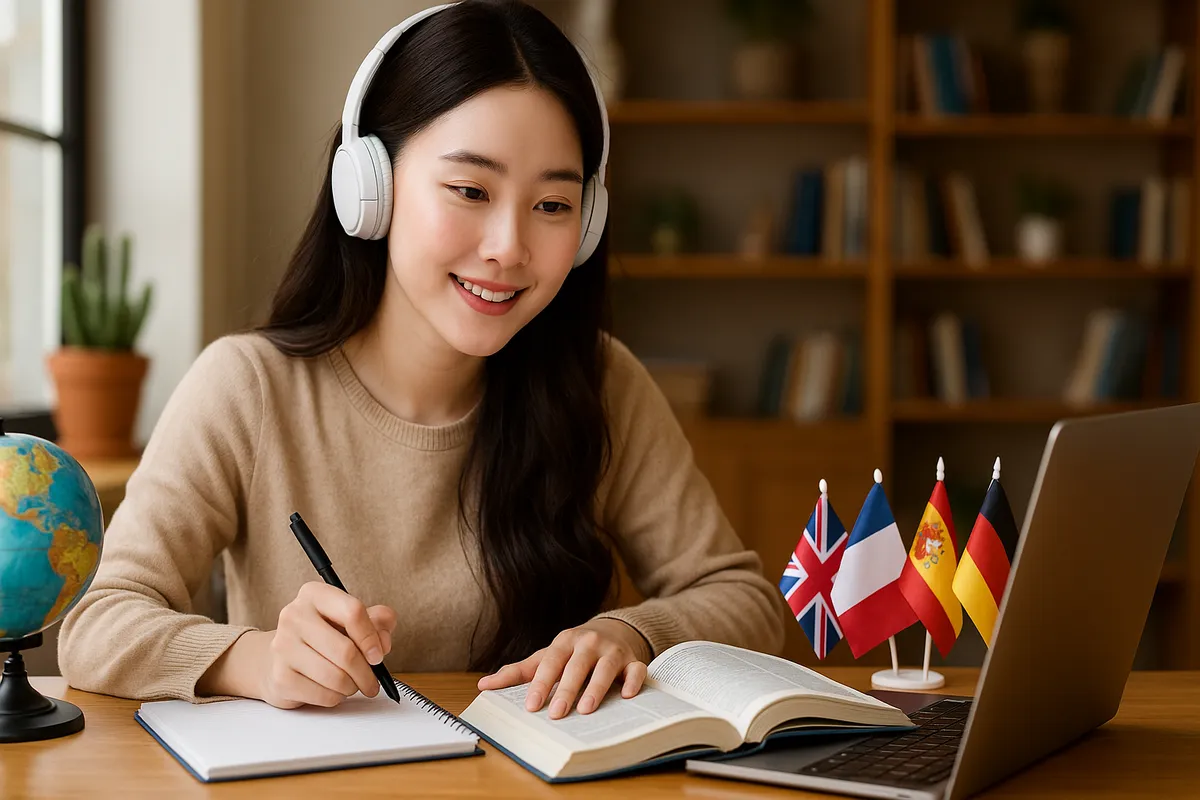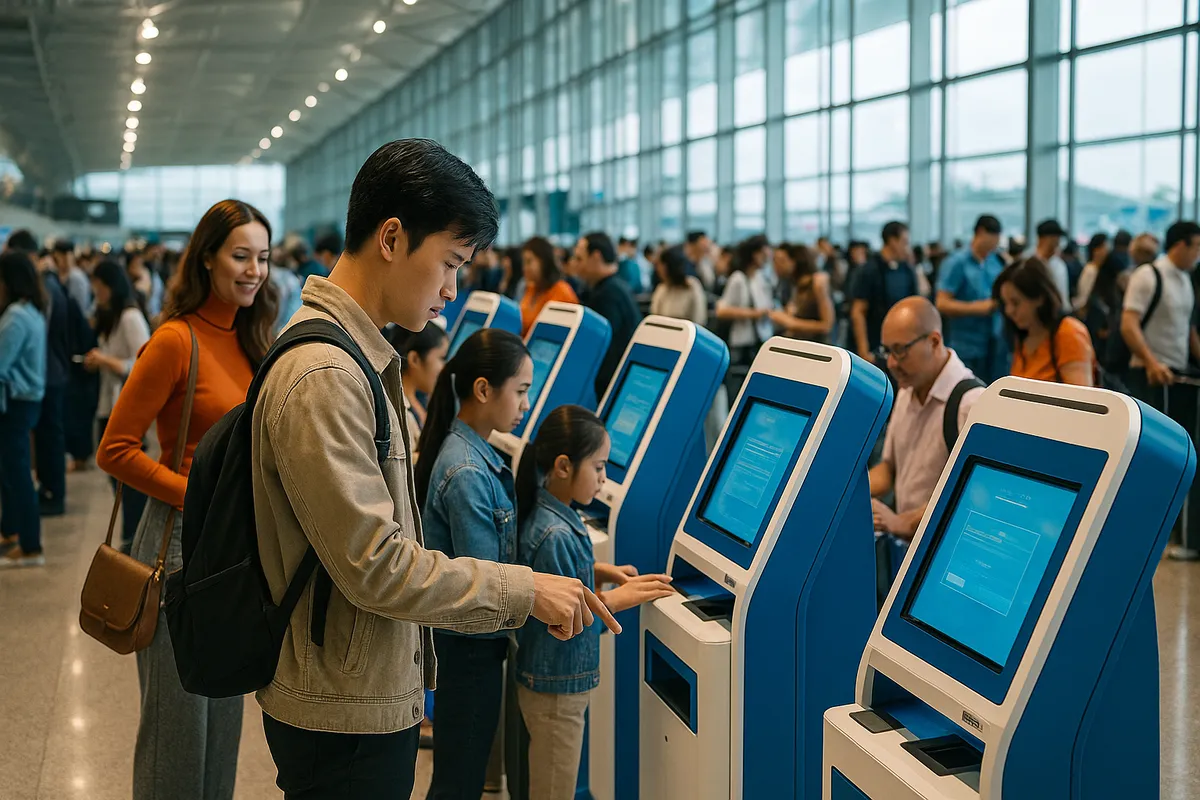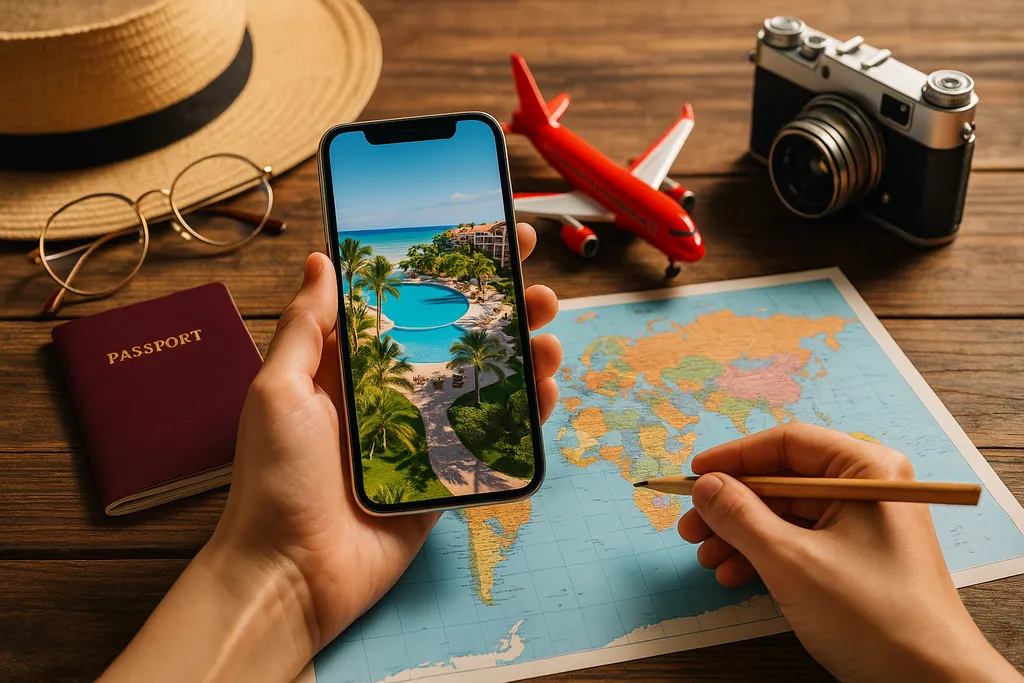Tips to learn a foreign language quickly before traveling to Vietnam
- Monday, Jun 16, 2025, 09:02 (GMT+7)
Tips to learn a foreign language quickly before traveling to Vietnam
Learning a new language is not about mastering every rule or memorizing a thousand words. It is about listening, observing, feeling, and daring to connect. This is especially true when preparing for a journey to Vietnam, a country rich in contrasts where language carries not only communication but rhythm, tone, and soul. Many travelers arrive with a phrasebook in hand, a translation app installed, and a quiet fear of saying something wrong. But what if preparing for your trip is less about traditional studying and more about immersion. What if your journey into Vietnam begins before the flight, through sound and repetition, until the words feel like part of your breath.
Every meaningful trip starts with intention. Vietnamese, being a tonal language, often appears intimidating at first. A word like "ma" can mean ghost, mother, tomb, or rice seedling, depending on tone. But this complexity hides a surprising beauty. When approached with curiosity rather than anxiety, Vietnamese reveals a musicality that makes it easier to absorb than expected. Instead of aiming for grammatical perfection, focus on patterns, sounds, and real-world usefulness. Let the language flow over you like warm air in a Hanoi summer or soft rain falling on a lantern-lit street in Hội An.
Begin by learning the words your body will naturally use in daily moments. These are not for exams but for expression. Phrases like "xin chào" for hello, "cảm ơn" for thank you, "tôi không hiểu" for I do not understand. Speak them while walking, cooking, waiting in line. Whisper them under your breath when no one is around. Let your mouth get used to their shape, your ears to their sound. When language becomes part of your routine, it stops feeling foreign.
There is something powerful about mimicking the way children learn. Use repetition, song, and play. Swap one daily song on your playlist for a Vietnamese track. You do not need to understand the lyrics right away. Just listening starts to shape your hearing. Record your voice and compare it to native pronunciation. Repeat until your tone matches. It will feel awkward at first. That is how it is supposed to feel. But gradually, it becomes more natural. The act of speaking out loud rewires your brain and builds confidence you will carry with you.
Vietnam is not a destination you pass through. It is a place that enters you, lingers in your senses. The language is everywhere, in the laughter of students, the sizzle of street food, the lullabies playing in family-run shops. Imagine ordering at a tiny phở stand. The owner asks something. You respond, even clumsily, “Một phở bò, không hành.” One beef noodle soup, no onions. It does not matter that your accent is imperfect. What matters is your willingness to speak, to connect. That small effort often brings a big smile.
Learn by imagining moments you will experience. Picture arriving at a train station in Đà Nẵng, walking into a coffee shop in Đà Lạt, or browsing a night market in Huế. Think of what you would need to say. Instead of learning isolated words, build phrases tied to context. Practice them out loud. Turn them into mini dialogues. Ask yourself questions. Answer as if someone was standing in front of you. This way, when the real moment comes, your mind will not freeze.
Transform your space. Label objects in your room with Vietnamese names. Watch short native videos meant for locals. Not lessons. Real content. Cooking shows. Talk shows. Daily vlogs. Even if you only understand a word or two, your brain starts to adjust. Suddenly, in the middle of a street in Saigon, you recognize "trái cây" on a fruit stand or "giảm giá" in a store window. These small moments feel like victories, and they build up over time.
If your departure is just days away, resist the urge to cram. Focus on phrases that are truly essential. Learn to say thank you, sorry, I need help, and I do not eat meat. These expressions help you navigate politely and respectfully. They show care. They keep you safe. Knowing how to say “tôi bị dị ứng” could save you in a restaurant. Saying “giúp tôi với” might bring help when you need it most. Focus on these first.
Make the practice physical. Use your hands. Act out phrases. Gesture as you speak. Vietnamese people often use subtle body language, so learning how to mirror that adds meaning beyond words. A small bow with a thank you. A hand over the heart while saying sorry. These non-verbal cues reinforce what your words might miss and make your effort feel more genuine.
The goal is never perfection. The goal is communication. Speak, make mistakes, laugh, and try again. Locals do not expect fluency. But they do appreciate intention. They notice your effort, your openness. And very often, they respond with patience, kindness, even friendship. Language is just the first layer of connection. What lies beneath is always human.
Once you arrive in Vietnam, the country becomes your classroom. You will learn from every interaction. From the vendor at the market who teaches you the price of mangoes. From the taxi driver who laughs at your accent and still understands you. From the receptionist who writes the address down so you can show it to someone later. Every day brings new opportunities to learn, and every mistake is a step closer to confidence.
You may find yourself walking down a quiet alley in the old quarters of Hà Nội, where time seems to pause between footsteps and the scent of noodle soup lingers in the air. A woman sits by her door, notices your puzzled look, and asks something. You do not understand, but you smile, offer a soft “xin lỗi, không hiểu,” and she smiles back, points gently in the direction you were hoping for. That shared moment, wordless yet full of meaning, will linger in your memory long after the trip is over.
Language is not a task to complete or a skill to check off. It is a thread that weaves you into the fabric of a place. It becomes part of how you see, feel, and experience the world. It begins with one phrase, one sound, one attempt to be understood. And over time, it becomes a part of you.
Long after your flight home, Vietnamese words will stay with you. You might catch yourself humming a tune you heard on the street. Or smiling when you hear someone say “ngon quá.” The language you learned in small, simple moments will continue to echo. Not because you spoke it perfectly, but because you spoke it honestly.
Travel is not about the places we pass through. It is about the people who pass through us. About the voices we meet. The words we carry. And the stories we can now tell in a voice that tried, even just a little, to speak the language of where we stood.

 CHECKIN.VN
CHECKIN.VN








Share on